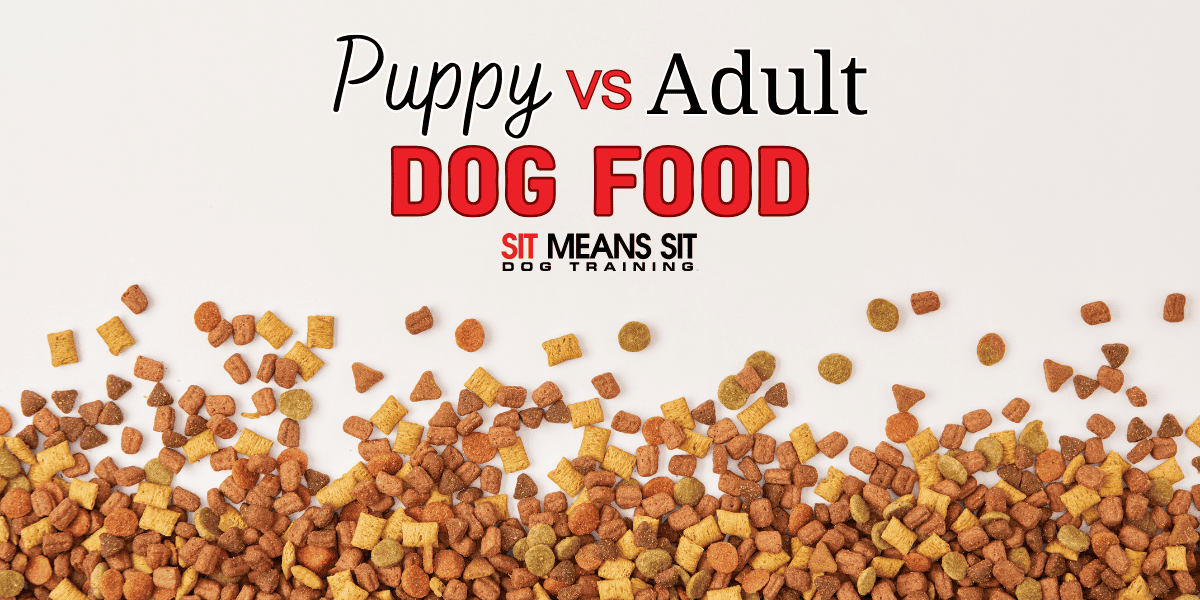Bringing home a puppy comes with a lot of decisions, and one of the first is choosing the right food. With so many bags labeled “puppy,” “adult,” or even “all life stages”, it’s easy to wonder if the type really matters. The answer is yes, and knowing the difference can significantly impact your pup’s health and development. To help you out, we’ve broken down everything you need to know about puppy and adult dog food.
Why Do Puppies Need Special Food?
Puppies are constantly growing, playing, and learning, meaning their nutritional needs are different from adult dogs. While adult dog food is designed to maintain health, puppy food goes a step further by supporting growth as well. After weaning, puppies use nearly half of their energy just for growing, so it makes sense that they need extra nutritional support during this stage.
Besides fueling their daily activities, the right puppy food also helps build strong bones, support brain development, and strengthen their immune systems. This is why puppy food contains a carefully balanced mix of protein, fat, vitamins, and minerals, which sets the stage for a lifetime of health.
Differences Between Puppy Food and Adult Dog Food
Although both puppy and adult dog food aim to keep dogs healthy, the way they do it is pretty different. Dog food designed for puppies has more protein and fat to support their rapid growth and give energetic pups the fuel they need to stay active. Adult dogs don’t need the calorie-dense formula of puppy food and might gain weight if they continue eating it after they’ve fully grown.
Additionally, puppy food usually has higher calcium and phosphorus levels to support bone and tooth development. It also includes more protein, carbohydrates, fats, and fatty acids, which support growing puppies. Adult dogs no longer need this extra support, so their food is made to help maintain a healthy weight and meet their everyday nutritional needs. Feeding adult food to a growing puppy could leave them short on some of these key nutrients.
Can Puppies Eat Adult Dog Food (and Vice Versa)?
You might be wondering if it’s ever okay for puppies to eat adult food or for adult dogs to nibble on puppy food. While an occasional switch-up likely won’t harm your pup, it’s not something you want to make a habit. One of the main reasons it’s important to give dogs the correct type of food is that puppies have specific nutritional needs that adult dog food doesn’t meet. Without the right balance of nutrients, they could end up with delays in growth or development.
At the same time, giving adult dogs puppy food regularly isn’t ideal either. The extra calories and fat in puppy food can lead to weight gain, and the higher calcium and phosphorus content can cause bone and joint problems. While some foods are labeled for all life stages, it’s always best to choose a food that matches your dog’s specific needs.
When to Switch Your Puppy to Adult Food
In most cases, your puppy will be ready to eat adult dog food when they reach about 80 percent of their full-grown size. However, the timing depends on your dog’s breed and overall growth rate. Dog breeds under 25 pounds tend to grow up more quickly and are usually ready for adult food between 10 and 12 months old. Dogs between 25 and 50 pounds should switch around 12 to 15 months, while pups over 50 pounds may need puppy food until they’re closer to 14 to 24 months old.
Of course, breed size isn’t the only factor to consider while deciding when to switch to adult dog food. Dogs with high energy levels might benefit from eating puppy food a little longer to keep up with their calorie needs. On the flip side, if your dog has been spayed or neutered before they’ve grown to 80% of their adult size, you may need to switch it a bit earlier than expected. To get a more specific estimate of when your puppy is ready to switch to adult food, talk to your veterinarian.
Making the Transition From Puppy to Adult Dog Food
When it’s time to make the change, you’ll want to ease into it slowly. Switching your dog’s diet too suddenly can cause an upset stomach or diarrhea. To avoid this, start by mixing a small amount of adult food with your puppy’s current food. Over the course of about a week, gradually increase the adult food and decrease the puppy food until the switch is complete. This helps prevent any stomach issues and makes the transition smoother for both you and your pup.
Check Out These Posts for More Dog Food Tips!
Understanding Your Dog’s Food Labels

